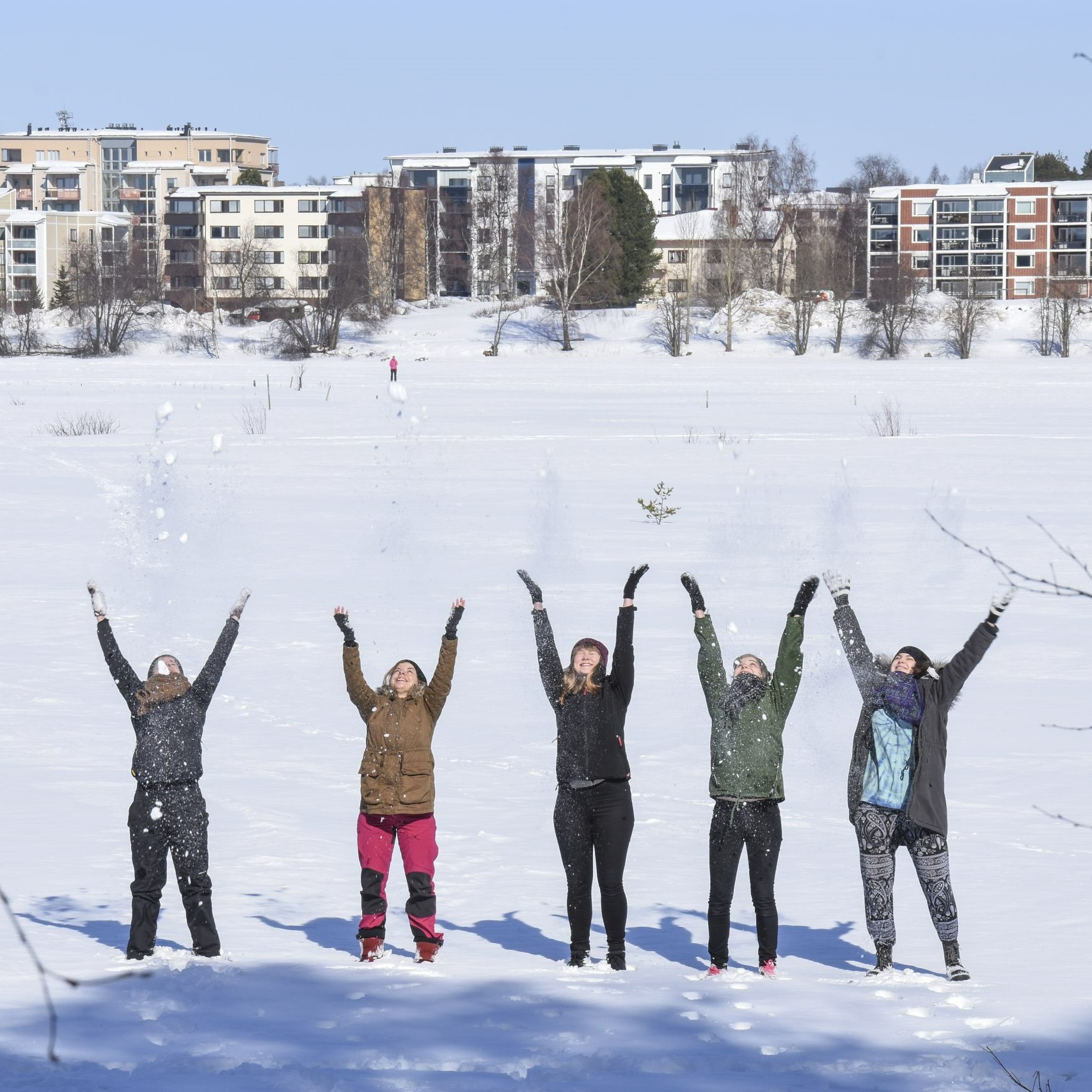Cultural orientation
How to study and live in Lapland and in Finland?
We know from experience that there might be something you are not thinking about right now – that you will very possibly be culture-shocked. And that you can and should prepare yourself for it.
The keys are understanding your cultural background, becoming aware of cultural differences, and finally understanding Finnish culture. Please have a notebook at hand for your reflection to start.
On this page, you will get information on how to prepare for cultural orientation when studying and living in Lapland and Finland. You will also have the possibility to start your cultural self-reflection by reflecting on some possible conflicts that you might encounter when your home culture and Finnish culture meets. Moreover, you will get information on your next steps: orientation for international students, courses on Finnish culture and intercultural communication, and other extracurricular social activities supporting your cultural understanding and integration into the Finnish culture.
Have fun!

Awareness of your own culture and cultural differences
“To be an exchange student is to be brave by choice, but also to be vulnerable by choice.”
International student at ULapland
These materials intend to help you understand the ways in which a person becomes vulnerable when they move to a new cultural environment – and to help you be brave about the challenges you will face.

Cultural shock
“Culture shock is a step ahead.”
Jörn Severidt, Senior Lecturer Intercultural Communication, Language Centre, University of Lapland
When entering a new country, we are necessarily uncertain about what behaviors are acceptable. Such uncertainty is due to the loss of familiar signs and symbols of social intercourse (both in the studies/work and non-study/work environment), most of which are not carried out on the level of conscious awareness.
Read more about how to prepare yourself for culture shock.

Finnish values and customs
A short look at central Finnish cultural values for your cultural prepping and reflection.
Equality, trust, honesty, and nature are examples of values that are important to Finns. In Finnish society, everyone is equal and must be treated fairly. Digital competence and individualism and independency are also typical Finnish customs and they are visible in university studies.

Your next steps
In this section, we will offer you more information about Orientation days, courses about cultural understanding, and the Finnish language at the University of Lapland and Lapland University of Applied Sciences.
Awareness of your own culture and cultural differences
As a former exchange student at the University of Lapland said “To be an exchange student is to be brave by choice, but also to be vulnerable by choice.”
These materials intend to help you understand the ways in which a person becomes vulnerable, when they move to a new cultural environment – and to help you be brave about the challenges you will face.
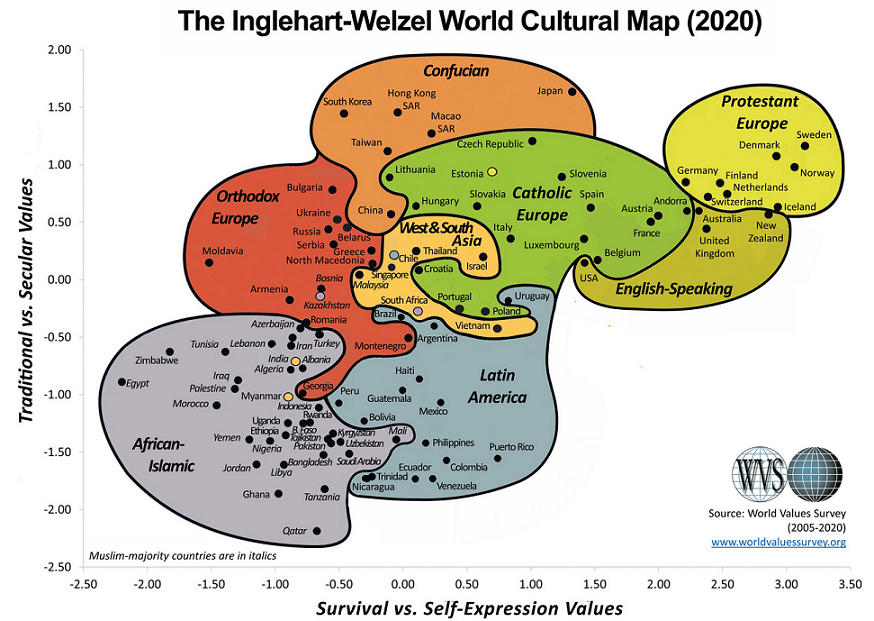
The Global Cultural Map
The World Values Survey Association(WVS) provides research for understanding differences and changes in the beliefs, values, and motivations of people throughout the world.
The WVS organizes its findings on the Global Cultural Map, along two major dimensions of cross-cultural variation: traditional values versus secular-rational values and survival values versus self-expression values.
The Global Cultural Map shows how scores of societies are located on these two dimensions.
The Cultural Iceberg model and the World Cultural Map are useful tools for seeing our own culture in comparison to other cultures on earth, and for reflecting on our values and the behaviors they generate.
Source of the picture of the cultural map here.
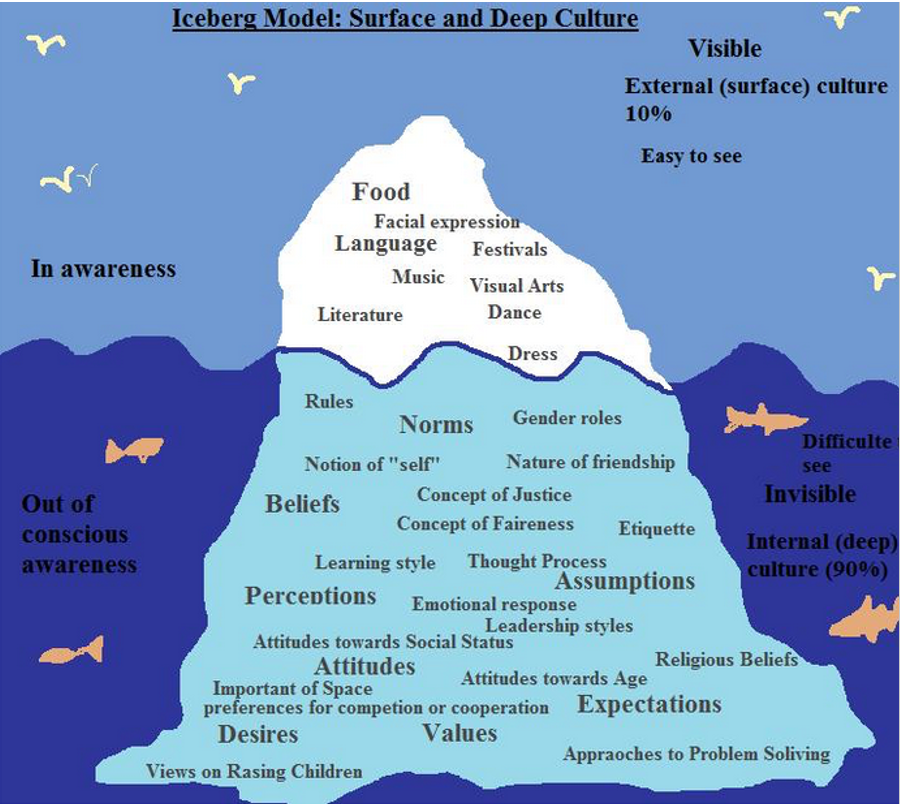
Creating cultural understanding
The starting point for creating cultural understanding is to become aware of your own culture: your learned behaviors, thoughts, believes, and motivations. Understanding your own culture as something you learned growing up, creates the basis for understanding and accepting the culture of others.
Cultural Iceberg Model
The Cultural Iceberg Model by Edward T. Hall describes culture as consisting of external, surface culture and internal, deep culture.
According to the model the external, visible aspects of a culture – for example, food, music, and facial expression – are easy to see and we are aware of these. The internal, invisible aspects – for example, beliefs, norms, values, and expectations – however, are difficult to see and they are out of our conscious awareness. According to the model, 90% of our culture is an invisible, deep culture.
Read more here (also the source of the picture above).
REFLECTION: Your home culture and Finnish culture
1. Consider the Iceberg model of culture:
- Can you describe visible parts of your culture? What might a visitor to your country notice?
- What about your own culture’s invisible parts? Are you aware of your own culture’s values, beliefs, or assumptions?
- Which visible parts of Finnish culture are you aware of already?
- Do you have any knowledge of deep Finnish culture (i.e. values, beliefs, assumptions)?
2. Find your own country on the WVS map.
- Read up about the two axes used by the WVS (i.e. traditional vs. rational-secular values and survival vs. self-expression values).
- For which of these sets of values do you find significant differences between your own country and Finland?
- Which factors might be producing these differences?
To read up about the World Value Survey and understand the paradigm of the value, please go here.
Cultural shock
When entering a new country, we are necessarily uncertain about what behaviors are acceptable. Such uncertainty is due to the loss of familiar signs and symbols of social intercourse (both in the studies/work and non-study/work environment), most of which are not carried out on the level of conscious awareness.
We tend to start out in the so-called honeymoon stage: excited to be here! However, most of us will sooner or later run into unpleasant surprises: our usual behaviors don’t seem to generate the reactions we expect them to have. And not only that, but people around us behave in ways that we find hard to interpret, or even to predict. The ensuing psychological stress is the crisis of culture shock. We will have to arrive at an understanding of our new cultural environment to work our way out of it.
Source: Marek Kocak, Management of cultural shock
Vanessa, a Master’s Degree student in Tourism Culture and International Management -programme advises how to prepare for studying at the University of Lapland.
She did not know what to expect from the learning environments and student culture of Finnish universities, even though she had been studying in Germany and France before. Read her blog here.
Picture: Vanessa Hylton, Opiskelijaelämää -blog, University of Lapland
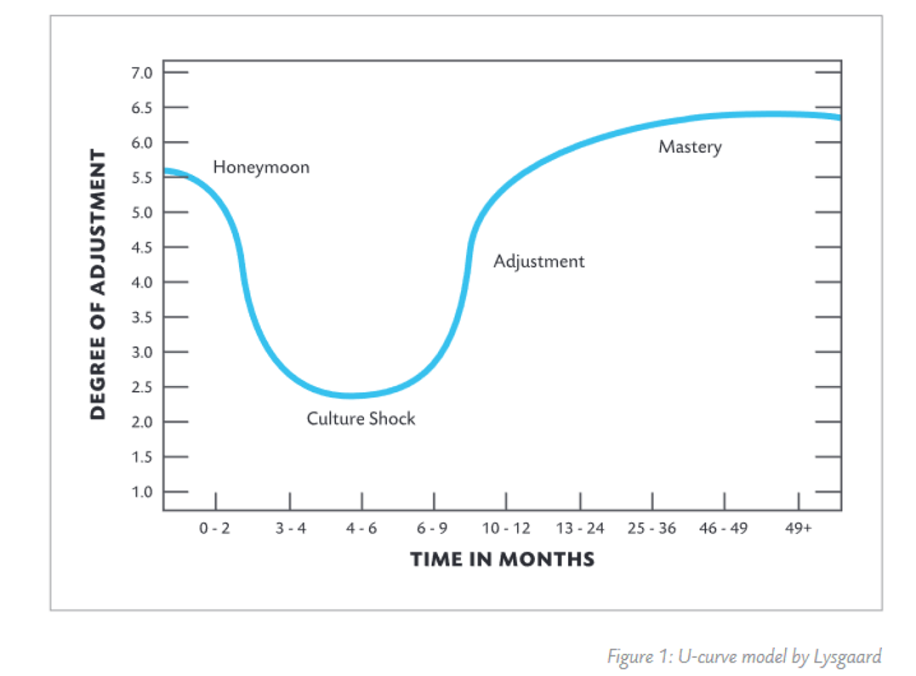
My Global Story: Culture shock – Exchange in Finland! -podcast made by Internationalisation services trainees Saija Halminen and Krzysztof Koleczek.
In the podcast, Matic Grešak from Slovenia shares his exchange experience in Finland and what it was like to move to a new country. From his experience there are in fact quite many differences between the Slovenian and Finnish cultures: but what are they and what should future students coming to Finland take into consideration?
My GLobal Story: Culture shock – Exchange in Finland! -podcast
REFLECTION: Culture shock
- Have your notebook at hand.
- Listen to the Culture shock -podcast and read the Studying at the University of Lapland blog text. Write down your thoughts and feelings.
- What was new to you? What did you already know?
- Can you think about some differences with your own culture and Finland?
- What kind of challenges do you think you will face?
- If you have previous experience of living abroad, did you experience culture shock? How did you cope?
Finnish values and cultural peculiarities
Here are some examples of Finnish studying and working culture. Take a look and learn!

Equality
According to Finnish legislation, women and men are equal. It is common for Finnish women to work even if they have children. Men and women are both responsible for the care of the children and the home.
Trust
It is common for Finns to trust other people and the authorities. Democracy and freedom of speech are also held in high regard in Finland. Everyone has the right to participate in the activities of the society. There is freedom of speech in Finland.
It is important for Finns to be able to trust not just their friends and neighbors, but also public authorities and officials. Finland consistently ranks at or near the top in international surveys comparing levels of trust in different societies: trust in such public institutions as the police and the legal system, trust in media, trust in politicians, trust in taxation, and trust in one’s fellow citizens.
Individualism
Finnish culture places more value on individualism than many other cultures. Freedom of the individual is strongly present in Finnish legislation.
Own space
Finns also value their privacy and own space. For example, young people are encouraged to become independent and move into their own homes.
Honesty and punctuality
Honesty is appreciated in Finland. It is important to keep your promises and tell the truth. Also, punctuality is important to Finns. When you have a meeting, arrive at the agreed time. If you have made an appointment with an official or doctor, for example, it is especially important to be there on time. For example, if you have made an appointment for 12 o’clock, make sure you arrive a little before 12. If you arrive at 12.10, you are late.
Modesty
Many Finns esteem modesty highly. People tend not to distinguish themselves in a group, they avoid talking in a loud voice and bragging. In Finland, it is good manners to take others into account and listen to them. Working and diligence are also held in high regard.
Nature
Nature is very important to Finns. Many Finns enjoy spending time in nature, for example, camping or picking berries. Everyman’s rights (jokamiehenoikeudet) are observed in Finland. According to them, people have free access rights to nature and do not need the landowner’s permission for all outdoor activities.
Sources: InfoFinland
Initiative and responsibility
In Finnish workplaces, supervisors do not monitor their employees’ work continually. Employers ask for their employees’ opinions and these are taken into account in job planning.
Work is usually arranged and agreed on at common meetings and jointly agreed matters are adhered to. A supervisor gives an employee their tasks and expects the employee to decide on the details of the work independently. If an employee does not know how to perform the given task or cannot do it, they ask their co-workers or the supervisor directly for instructions.
Behind trust, there is also a deep sense of responsibility. Finns believe that they can only succeed if everyone pulls together and obeys the rules – and everyone gets a chance to do their best. That can only happen in a society where equal opportunities are balanced with equal responsibilities.
Digital competence
Finland is a forerunner in digital governance and digital services and it is the most digitalised country in Europe. Online banking, annual taxation reporting, and health services are just a few examples of how digitalisation is present in Finnish daily life. Access to online banking is actually way more than just handling your daily banking issues: it serves as a digital identification to many digital services.
Trust is a pivotal factor for a successful digital government. In Finland, citizens and businesses trust government agencies to provide services in a reliable, impartial, and timely manner. The government trusts citizens and businesses. Finland has one of the least corrupt government sectors in the world.
Discussion and interaction
Finns like to start a conversation by going straight to the point. The Finnish style of speech is direct and straightforward. In Finland, people are expected to truly mean what they say. People believe what you say and expect you to act accordingly.
There may be a certain amount of quiet moments in conversations with Finns. Silence is not a negative thing, it feels natural to Finns. There is no need to fill quiet moments with speech.
Loud speech can be thought of as unpleasant or threatening.
In Finland, it is considered rude to interrupt people when they are speaking. Finns normally wait for their discussion partners to finish before speaking themselves.
It is uncommon in Finland to show your emotions in public. It is considered rude to raise your voice when speaking, especially in a public place.
Sources: InfoFinland, Finland Toolbox
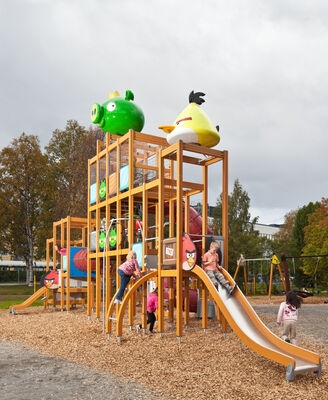
REFLECTION: Finnish values, own cultural values, and studying
- Where do you see the potential for conflict between Finnish values and the societal norms and behaviors, to which you are used?
- What kind of challenges could you be facing when starting your studies? Consider both daily life outside the university and your studies?
- What were your expectations towards studying in Finland? After reading the materials, do you think they will be met? Which of them probably won’t be met?
Your next steps
Orientation days at University of Lapland
In the Orientation days for International Students at the University of Lapland you will hear more about studying in Finland, and about culture shock and cultural adaptation. You will have the possibility to continue your self-reflection.
The Friend programme, Cafe Lingua, and other extracurricular activities supporting your cultural orientation and integration will be presented during the Orientation days.
If you start your studies at Lapland University of Applied Sciences, check out the link below to learn more.
Courses for Cultural understanding
at University of Lapland
After the orientation week, we recommend that you sign up for the course XICP0224 Understanding Finland (3 ECTS credits), consisting of four lectures held during the two weeks following the orientation week. You will be able to either attend the lectures in person or watch them online.
Additionally, the self-study course XICP0237 SILTA/BRIDGE Cultural Adaptation Diary (4 ECTS credits) offers you the possibility to consciously reflect on your cultural adaptation process over the first months of your Finnish experience, building on what you have already learned here.
These courses will be offered at the University of Lapland.
Do you want to learn more about the Finnish language and culture?
Check out the courses by clicking the name of the institute you will be studying.

